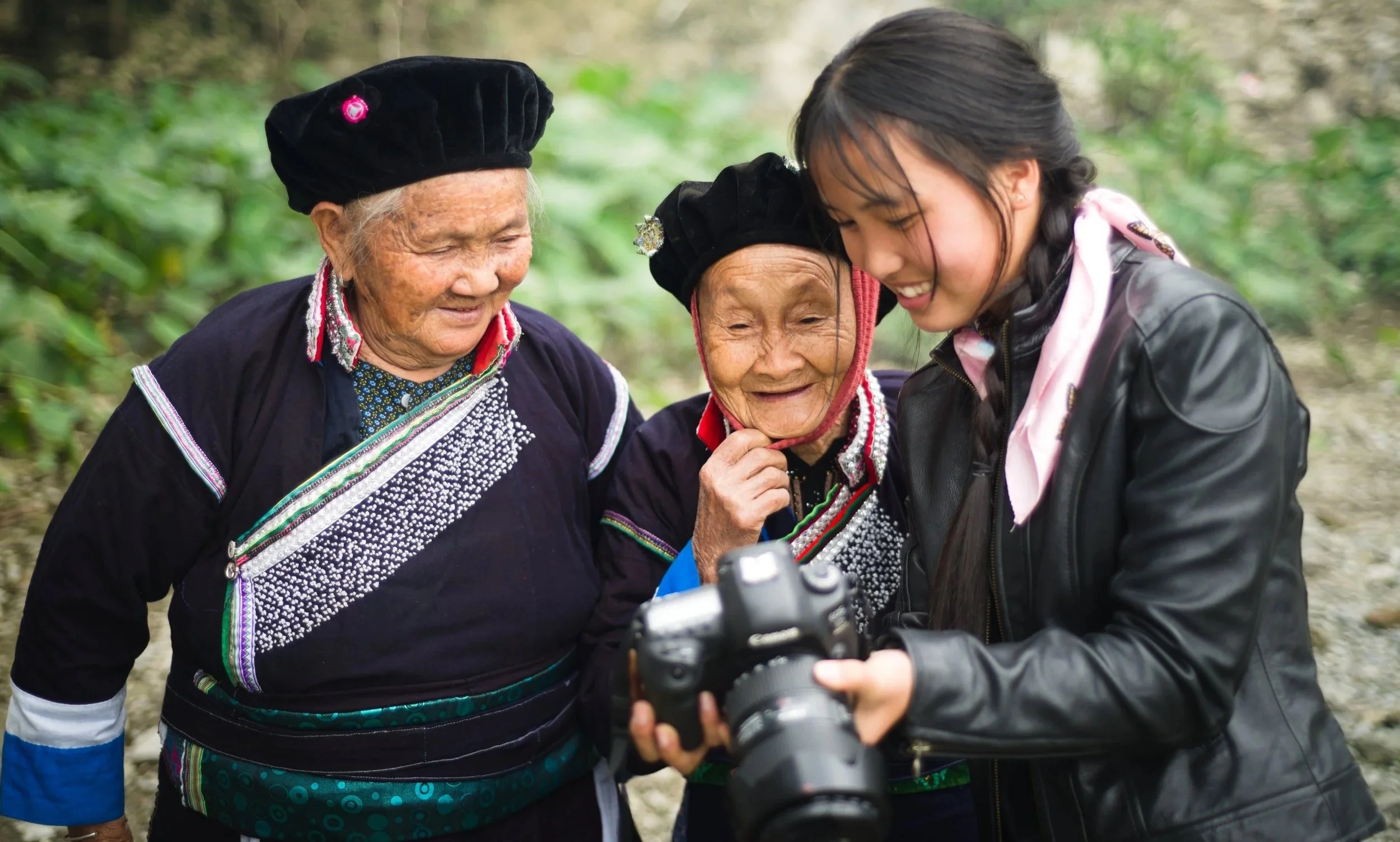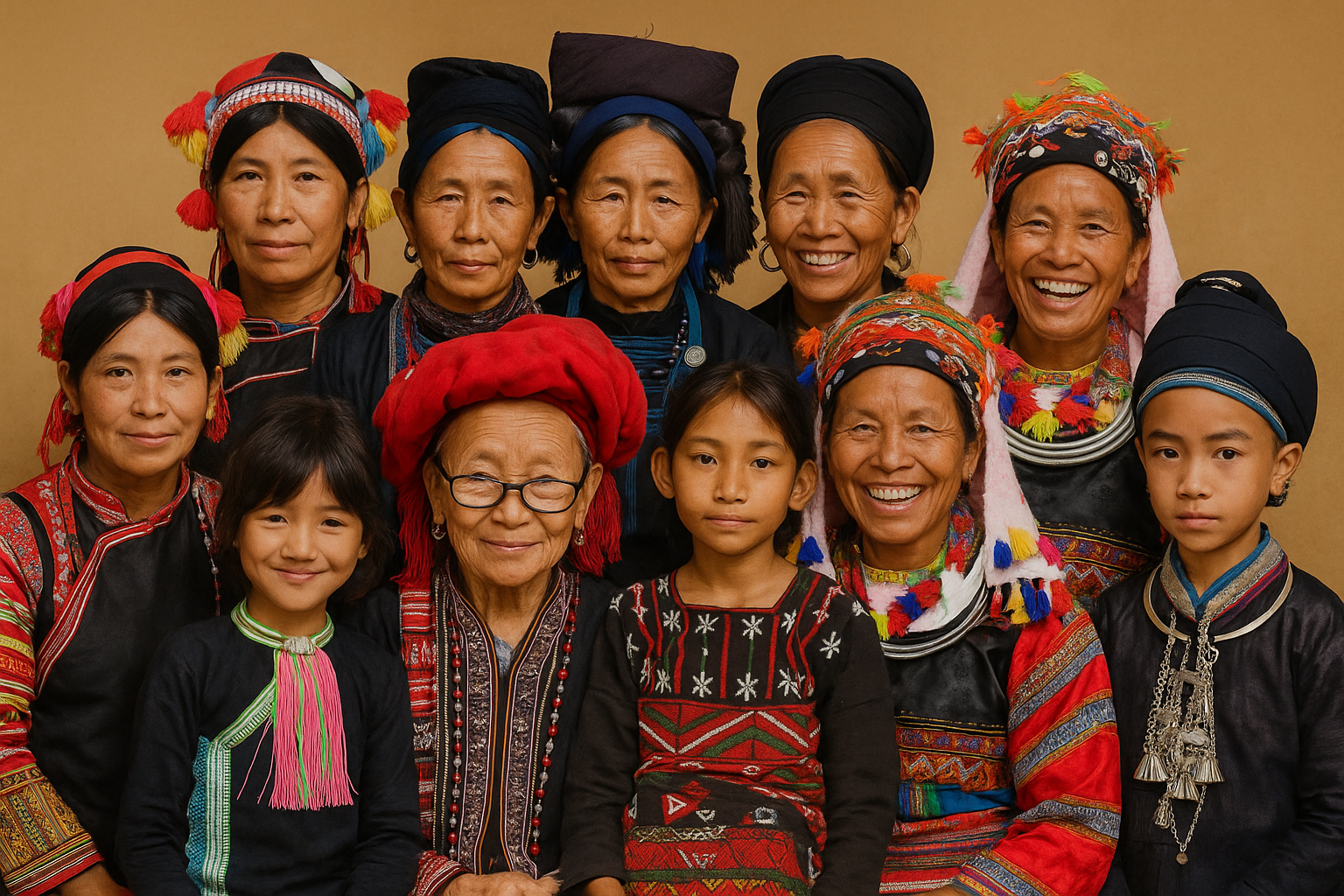
Heritage Shorts: Documenting Vietnam’s Living Traditions
Heritage Shorts is a documentary series created in collaboration with Heritage Centre Sapa and Open Cinematic, dedicated to capturing the living traditions of Vietnam’s ethnic minority communities. Each short film offers an intimate look at unique crafts, practices, and rituals that have been passed down for generations. From the ramie weaving of the Dao Tuyen and cotton cultivation in Bắc Hà, to the artistry of Dao Đỏ crossbow making and the culinary traditions of the Hà Nhì, these films preserve and celebrate the cultural richness of northern Vietnam. Together, they form a visual archive that highlights the resilience and creativity of communities whose heritage remains a vital part of the country’s identity.
Ramie Weaving (Dao Tuyen) /// Heritage Shorts #1
In the first of a new series of short films from Heritage Centre Sapa in association with Open Cinematic, we meet May of the Dao Tuyển in Lai Châu province Vietnam. The cultivation of ramie, a flowering plant in the nettle family, for use in textiles is unique to the Dao Tuyển. Here we document the process of producing an organic ramie bag and capture something of the intangible cultural heritage of this region.
The Crossbow (Dao Đỏ) /// Heritage Shorts #2
In the second of a new series of short films from Heritage Centre Sapa in association with Open Cinematic, we meet Lý Phụ Quáng of the Dao Đỏ in Tả Phìn village. While rattan is most often used to make furniture, baskets and cord, we here document the process of collecting and preparing rattan for use as a bowstring in a tradition Dao crossbow.
Cotton Weavers of Bắc Hà /// Heritage Shorts #3
In the third of a new series of short films from Heritage Centre Sapa in association with Open Cinematic, we meet Vàng Thị Ngải of the La Chí and her daughters. The La Chí are one of the lesser known of Vietnam’s 54 ethnic minority groups with a population of approximately 12,000 people. Despite the widespread availability of cotton fabric at markets across Vietnam, for the La Chí, remarkably, cotton cultivation remains a living tradition.
Women of Bát Xát /// Heritage Shorts #4
In the fourth of a new series of short films from Heritage Centre Sapa in association with Open Cinematic, we meet the Black Hà Nhì of Bát Xát district. One of Vietnam's smaller minority groups, the Hà Nhì are famous for their distinctive clothing and architecture. Here we document the process of making a traditional rice cake known as 'bánh dày'.
Hmong Batik /// Heritage Shorts #5
In the fifth of a new series of short films from Heritage Centre Sapa in association with Open Cinematic, we meet Pằng and Dê – two H’mông friends from Mù Cang Chải district in Yên Bái province, northern Vietnam. Like every H’mông woman from the region, batik textiles form an important part of Pằng and Dê’s culture. Each cotton panel requires about six hours work. The process is completed with embroidery and appliqué to give the textiles flashes of colour.
The orchards of the Nùng /// Heritage Shorts #6
In the sixth of a new series of short films from Heritage Centre Sapa in association with Open Cinematic, we visit the orchards of Tân Bình in Quang Bình district. Nùng women are best known for their distinctive clothing, traditional handicrafts and skill at farming a variety of crops. Here we witness skills passed on between generations and a unique process of shining cotton.
Hmong Bamboo Foragers /// Heritage Shorts #7
In the seventh of a new series of short films from Heritage Centre Sapa in association with Open Cinematic, we meet Ker in the forests of Lào Cai province. The shoots of several species of bamboo have been harvested for consumption by the H’mông people for centuries; young ferns produce furled fronds that can be eaten as a vegetable and in autumn, giant tadpoles provide a novel source of protein.
The Qeej Maker & Son /// Heritage Shorts #8
In the eighth of a series of short films from Heritage Centre Sapa in association with Open Cinematic, we meet master craftsman Thào A Trình. From his Sapa home, Trình honed his skills by watching his artisan father and has now been producing the qeej - a free-reed multiple pipe instrument - for the past fifteen years. The qeej is used to communicate with the spirit world and can express musically the lyrical qualities of the H’mông language.
Shaman (Dao Đỏ) /// Heritage Shorts #9
In the ninth of a series of short films from Heritage Centre Sapa in association with Open Cinematic, we meet Dao shaman Lý Phù Vạn. Shaman are cornerstones of culture and society in northern Vietnam, caring for both rich and poor and attempting to heal illnesses through offerings to the spirits. In Dao culture, the souls of sacrificial animals are intimately connected to human souls.
The Papermakers (Dao Đỏ) /// Heritage Shorts #10
In the tenth of a series of short films from Heritage Centre Sapa in association with Open Cinematic, Triệu Chàn Lìn and his wife Lý Thị Khé. The Dao Đỏ of Hà Giang province are famed as artisanal paper makers, continuing a tradition thought to have begun in China during the Southern Song Dynasty. The process begins with the collection of a variety of wild bamboo and results in the creation of a natural, organic paper that is widely used in traditional ceremonies.
The Knifemakers (Dao Đỏ) /// Heritage Shorts #11
In the eleventh of a series of short films from Heritage Centre Sapa in association with Open Cinematic, we meet blacksmith Tẩn Vần Phú of the Red Dao (lu Mien) ethnic group. The son of a high shaman, Phú has lived in Phìn Hồ village since birth and together with Tẩn Vần Siệu makes knives and axe heads from his family home, which doubles as a smithy.
Fire Dancers (H'mông) /// Heritage Shorts #12
In the twelfth of a series of short films from Heritage Centre Sapa in association with Open Cinematic, we meet master shaman Lý A Cha of the Black Hmong ethnic group. Once a year, he performs a special ceremony to clense the home, welcome in the New Year and guide villages as to their duties in the following monts.
Tình & Tá (Dao Đỏ) /// Heritage Shorts #13
In the thirteeth of a series of short films from Heritage Centre Sapa in association with Open Cinematic, we meet Lý Văn Tình and his wife Lý Thị Tá in a small floating village on Na Hang Lake. Having farmed rice for generations, the decision to live on the newly formed lake created many challenges. With no phone reception and no TV, their life has drifted away from modern society.
Harvey Bunegar is a British independent filmmaker, educator and adventurer working primarily in the realm of documentary and broader nonfiction contexts.
As an undergraduate in Film Production at the Arts University Bournemouth, Harvey specialised in nonfiction film and sound design – writing his dissertation on the corporeal implication of the audience through sound in the work of Apichatpong Weerasethakul. His graduation film, AUROЯUA, received its international premiere at the 51st Chicago International Film Festival.
In 2015, Harvey founded Open Cinematic, a nonprofit filmmakers' co-operative. The group seeks to engage with social, ecological and political concerns, serving a fundamentally humanitarian agenda. The co-op places emphasis on shared authorship and facilitates localised community engagement in the arts.
Harvey holds a University of Cambridge CELTA, teaching internationally while in the development stages of new work. Based in Vietnam, he is currently developing a series of ethnographic short films for Heritage Centre Sapa.
Harvey has had a lifelong love of the natural world, actively campaigning on environmental issues and supporting direct action on climate change. He is currently seeking to develop new work at the intersection of conservation and ethnic minority issues.
Click here for more infomation about the Northen Vietnamese ethnic groups and our treks, homestays, motorbike and car loops to visit these unique communities.


